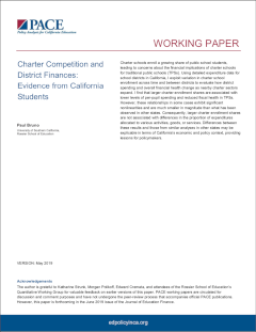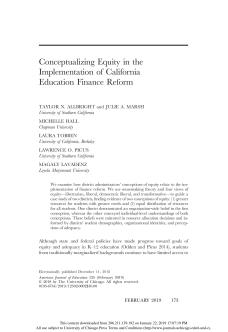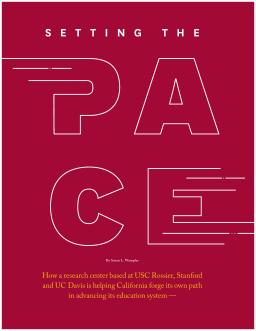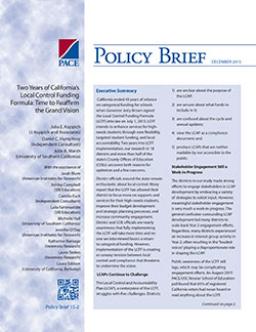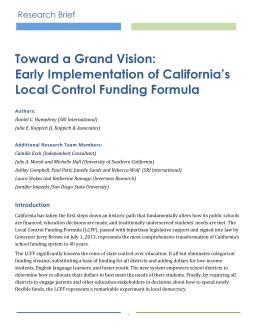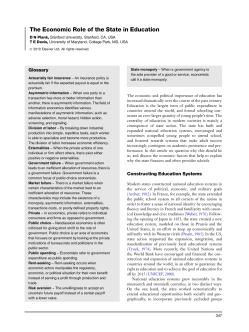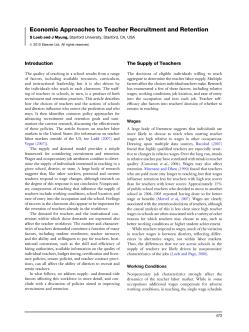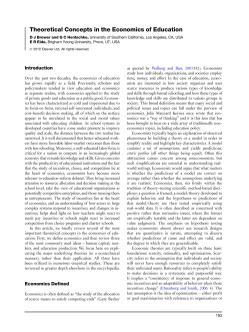Evidence from California
Published
Summary
This paper examines how the growth of charter schools affects traditional public schools' financial health in California. The study finds that higher charter enrollment is associated with lower per-pupil spending and fiscal health in traditional public schools, but the effects are smaller than in other states. However, the proportion of expenditures allocated to different activities, goods, or services does not differ. The paper provides lessons for policymakers and suggests that California's economic and policy context may explain the differences from similar analyses in other states.
Published
Summary
This article uses case studies to explore how district administrators' conceptions of equity relate to finance reform implementation. The authors identify two conceptions of equity: greater resources for students with greater needs, and equal distribution of resources for all students. These beliefs were reflected in resource allocation decisions and were informed by districts' student demographics, organizational identities, and perceptions of adequacy.
How a Research Center Based at USC Rossier, Stanford and UC Davis Is Helping California Forge Its Own Path in Advancing Its Education System
Published
Summary
Policy Analysis for California Education (PACE) is a consortium of researchers, policymakers, and practitioners from USC Rossier, Stanford, and UC Davis Schools of Education working to improve education policy in California. PACE's focus has been the Local Control Funding Formula (LCFF), which changed the state's K-12 budget allocation. The consortium's strength is in its ability to get research into the hands of decision makers, especially in Southern California, where over a quarter of the state's K-12 students reside.
Time to Reaffirm the Grand Vision
Published
Summary
The Local Control Funding Formula (LCFF) replaced categorical funding for schools in California in 2013, providing flexibility, targeted student funding, and local accountability. Two years in, research shows optimism and concern. The Local Control and Accountability Plan (LCAP) faces challenges, stakeholders need more engagement, and implementation requires capacity and overcoming the emerging teacher shortage. Public awareness of LCFF lags at 65%.
Early Implementation of California's Local Control Funding Formula
Published
Summary
California's Local Control Funding Formula (LCFF) represents a major shift in the state's education system by empowering school districts to allocate funding based on the needs of their students, with added funds for disadvantaged students. The LCFF eliminates categorical funding streams and promotes local democracy by requiring stakeholder engagement. The implementation of the LCFF is still in its early stages, and this study examines how school districts are using their newfound budget flexibility and engaging stakeholders, as well as identifying opportunities and challenges.
Published
Summary
This article explores the reasons why education has become a central focus of modern societies and the largest public expenditure around the world. The state has built and expanded national education systems, made attending school mandatory, and linked adult success to academic performance. The article delves into the economic factors behind state financing and provision of schools.
Published
Summary
This article discusses how teacher recruitment and retention affect the quality of teaching in schools. The supply and demand model, including wages and non-pecuniary job attributes, influences the supply of potential and current teachers. The demand for teachers depends on factors such as student enrollment and institutional constraints such as hiring authorities' skill and efficiency. The article identifies common policy approaches to improve recruitment and retention and summarizes current research on their effectiveness.
Published
Summary
Economics of education has grown in importance over the past two decades, as education is viewed as a critical factor in a nation's economic success. Economics can help improve the productivity of educational institutions by focusing on incentives, choice, and competition. The article reviews important theoretical concepts in the economics of education, including human capital, markets, and education production, and how they have been used in empirical studies.
